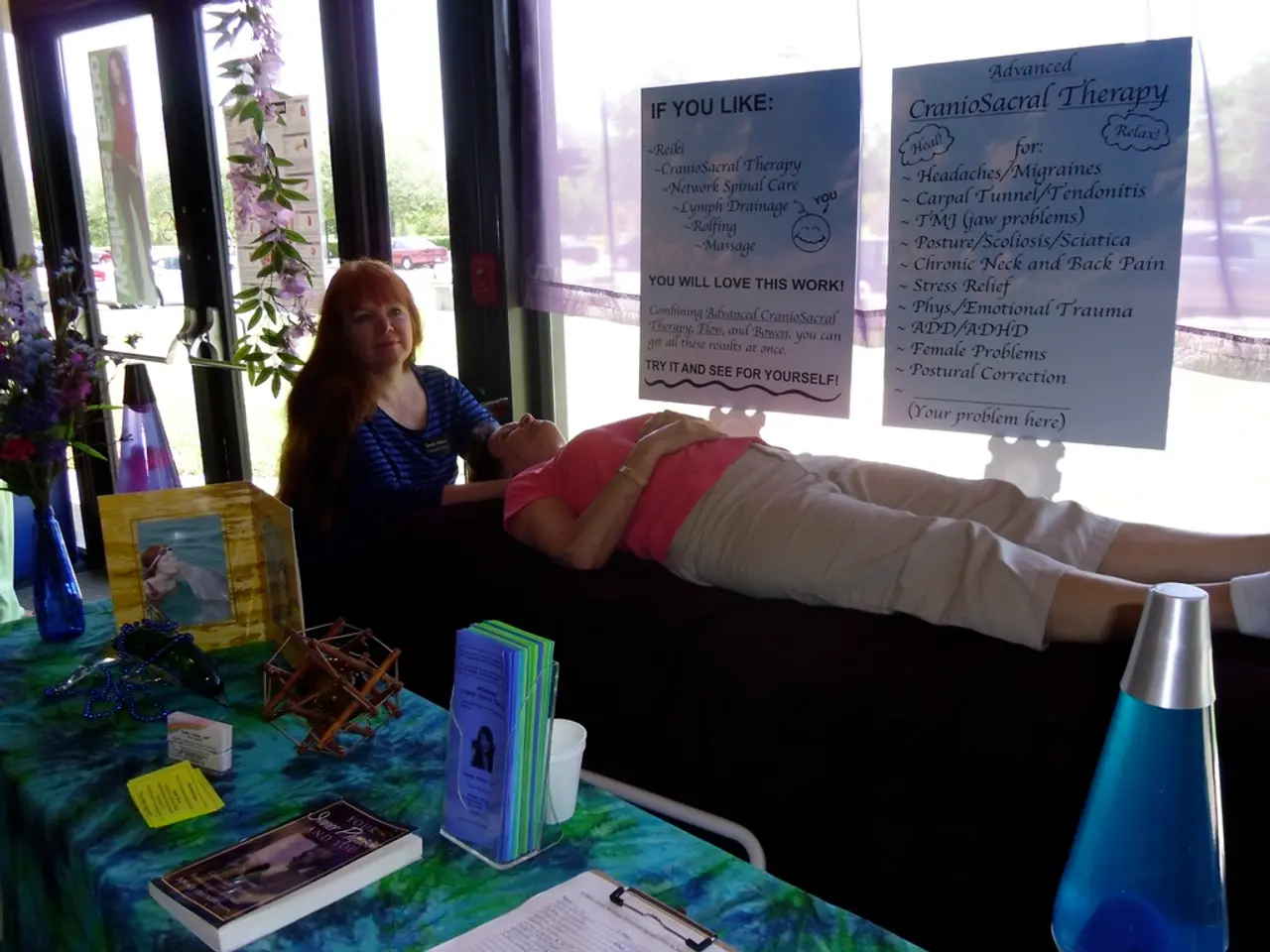Early-Onset Dementia on the Rise: Strategies for Caregivers to Handle the Emotional Strain of This Taxing Ailment
In 2015, during his final year of university, Mr. Eric Lim found himself in an unexpected role - a caregiver to his father, who had been diagnosed with vascular dementia after a series of strokes. This change was a shock to the family, as Mr. Lim's father was previously a very gentle person.
The impact of vascular dementia on the patient's personality can be significant and distressing for both the patient and their loved ones. Mr. Lim's father's condition affected not only his memory but also his behavior and emotional control. He became easily agitated and would pluck at his diaper in distress after losing control of his bowel movements. This change was a source of stress for Mr. Lim, leading to feelings of burnout.
Caregivers of individuals with vascular dementia commonly face emotional challenges such as guilt, anxiety, frustration, and feelings of inadequacy, along with financial stress. These stressors stem from the demanding nature of caregiving, the emotional strain of seeing loved ones' cognitive and functional decline, and frequent communication difficulties as patients may say hurtful things due to lost social filters.
The caregiving role Mr. Lim took on for his father may have influenced his increased impatience and decreased empathy. Daily challenges included managing his father's vision and hearing impairments, which worsened isolation and emotional strain if unrecognized. Caregivers often experience exhaustion and social isolation, leading to "caregiver stress syndrome," which includes health problems and burnout especially when caregiving time is extensive.
The functional decline of the patient, such as loss of ability in activities of daily living and increased fall risk, directly increases caregiver burden. Caregivers who are adult children or who access allied health services tend to experience somewhat less burnout, suggesting social support and healthcare resources can mitigate challenges.
The impact on caregivers’ daily lives is substantial. It may restrict their ability to leave the patient alone, limiting personal activities and self-care, which exacerbates emotional strain. Support groups, respite care, psychoeducation, and stress reduction techniques (e.g., mindfulness) have been recommended to help maintain caregivers’ mental health and sense of coherence, which is protective against stress effects.
After his father's passing, Mr. Lim felt it was a role reversal to care for his father due to his father usually taking care of him. This personal experience with vascular dementia likely played a role in the creation of Somnus Sleep Wellness, a company that Mr. Lim now co-founded to help people with sleep issues such as insomnia. The emotional challenges faced during his caregiving role underscore the importance of addressing the needs of caregivers for comprehensive support, including education, respite, social services, and psychological resilience training.
References:
- National Institute on Aging. (2021). Vascular dementia: Overview.
- Alzheimer's Society. (2021). Vascular dementia: Types, causes, and risk factors.
- American Psychological Association. (2021). Caregiver stress syndrome.
- Mayo Clinic. (2021). Vascular dementia: Symptoms and causes.
Science plays a crucial role in understanding the health-and-wellness implications of conditions like vascular dementia, particularly in terms of mental health and aging. Caregivers of individuals with vascular dementia often face emotional challenges, and mental health interventions, such as support groups, respite care, psychoeducation, and stress reduction techniques, can be beneficial for maintaining their mental health and sense of coherence.




